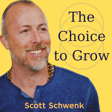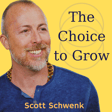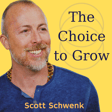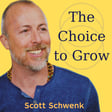
Kristen Ragusin on The End of Scarcity
What if everything we believe about money is a spell? In this electrifying and soul-rooted conversation, Kristen Ragusin—author, economist, and truth-seeker—joins Scott Schwenk to explore how our financial systems obscure the truth of our value. From early awakenings to working with the World Bank, Kristen shares the journey that led her to redefine wealth as an inner state—and reclaim the sovereignty of the human soul. This episode will change the way you think about money, power, and what you’re really worth.
Kristen Ragusin - Finance Maven, Author, Visionary
Kristen Ragusin is the best selling author of The End of Scarcity, professional wealth management advisor with over thirty years of experience. She is a certified digital currency expert and earned her master's degree from the Fletcher School of Law and Diplomacy at Tufts University. She holds certificates in FinTech from MIT and in money mechanics from the University of Cumbria, London. Kristen loves the adventure of life. Her journeys throughout the world include climbing Mount Kilimanjaro, hiking through the Sahara Desert, and studying at a spiritual school in the foothills of Southern India.
aster Coach, Spiritual Teacher, Culture Architect
Scott’s teachings, courses and private mentoring guide leaders, seekers and creatives to explore their deepest selves in service of thriving on all levels of being, both individually and relationally.
Host and creator of the podcast The Choice To Grow, Scott is known for his hugely popular courses and workshops with OneCommune.com, Younity.com, Wanderlust Festivals, and Unplug Meditation, Scott has been catalyzing the inner evolution of others for decades: helping them to grow, transform obstacles into opportunities, and find Love within.
Scott spent several years living and studying in a meditation monastery which introduced him to the core body of Tantric meditation traditions which continue to flow through each of his teachings. Scott continues to study and teach from two key Tantric lineage streams.
Apprenticeships in leadership development, meditation and philosophy training, shadow work/shadow resolution and spiritual awakening are all part of Scott’s development into the thought-leader that he is today. He continues to refine his offerings studying and practicing with key innovators at the leading edges of human development.
Scott’s teachings support the entire person to not only progressively recognize, stabilize and embody our inextricable oneness with the source of creation (Waking Up), but also to resolve the wounds of the past (Cleaning Up), continually expand our capacities for wider and more inclusive perspectives on any moment (Growing Up) and creatively and joyfully participate and collaborate with all of life as a loving thriving human being (Showing Up).
You can receive a free guided meditation and explore Scott’s courses, workshops, retreats, training and master coaching at https://scottschwenk.com and can find him on Instagram @thescottschwenk.



